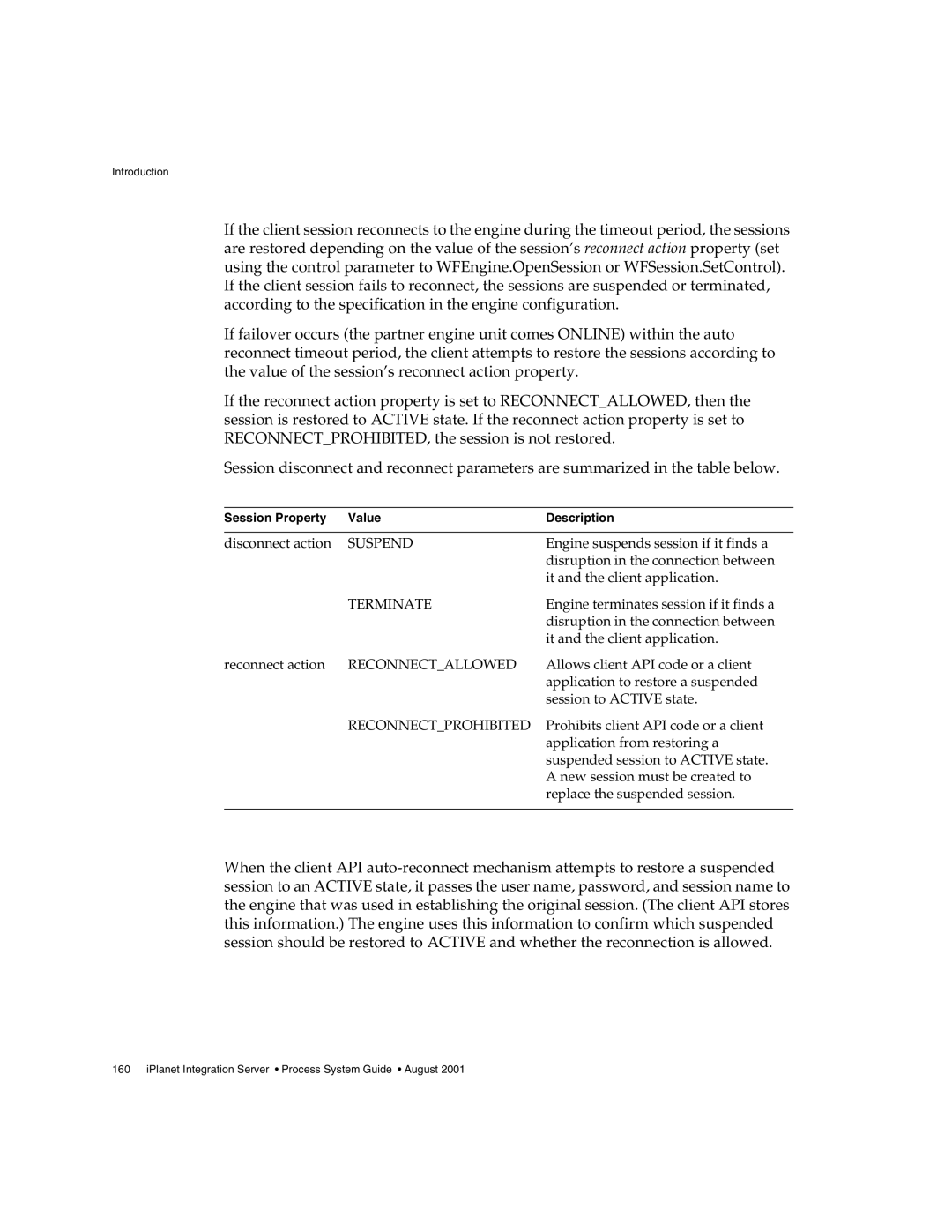Introduction
If the client session reconnects to the engine during the timeout period, the sessions are restored depending on the value of the session’s reconnect action property (set using the control parameter to WFEngine.OpenSession or WFSession.SetControl). If the client session fails to reconnect, the sessions are suspended or terminated, according to the specification in the engine configuration.
If failover occurs (the partner engine unit comes ONLINE) within the auto reconnect timeout period, the client attempts to restore the sessions according to the value of the session’s reconnect action property.
If the reconnect action property is set to RECONNECT_ALLOWED, then the session is restored to ACTIVE state. If the reconnect action property is set to RECONNECT_PROHIBITED, the session is not restored.
Session disconnect and reconnect parameters are summarized in the table below.
Session Property | Value | Description |
|
|
|
disconnect action | SUSPEND | Engine suspends session if it finds a |
|
| disruption in the connection between |
|
| it and the client application. |
| TERMINATE | Engine terminates session if it finds a |
|
| disruption in the connection between |
|
| it and the client application. |
reconnect action | RECONNECT_ALLOWED | Allows client API code or a client |
|
| application to restore a suspended |
|
| session to ACTIVE state. |
| RECONNECT_PROHIBITED | Prohibits client API code or a client |
|
| application from restoring a |
|
| suspended session to ACTIVE state. |
|
| A new session must be created to |
|
| replace the suspended session. |
|
|
|
When the client API
